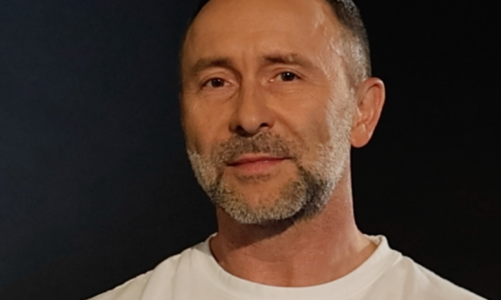Since 2011 Petr Fajmon has been the CEO of Teplárny Brno, a.s. which provides Brno residents with reliable heat, electricity, and gas supplies and is also responsible for developing electromobility. He is also using his managerial experience to implement the clean heat project for the city.
The whole world is changing and so is Teplárny Brno. What does this change consist in?
I cannot speak for the world. As far as Teplárny Brno is concerned, it is clear that if we wish to be a prosperous, dynamic company, we must respond flexibly to external influences and cope with them. However, I would like to stress that the history of our company has been written for almost a century, and the pillars on which its founding fathers built it remain unchanged. Innovation and modern technology for efficient and economical production are also the basis for us. However, we do not want Brno residents to perceive us only as a “pipeline system” but as a partner offering them a wide range of services, including advice on navigating the energy market.
You are a supplier of heat not only for households but also for companies and institutions. Do your customers demand a reduction in their carbon footprint or just the price of supply?
Sustainability and the drive to reduce emissions have long been written into our projects. It is clear to almost everyone that we need to respond to climate change. We all want to pass on the planet to our children and grandchildren in the best possible condition, and we need to start doing something urgently. However, especially given the energy crisis and the extreme price increases, I think most people now prefer the price and the security of supply. However, as a socially responsible company, we strive for balance. To offer heat that is costcompetitive, reliable, safe and, as far as possible, produced with the utmost respect for the environment. It is also in line with the city management, which is a 100% owner of our company. Brno joined the Mayors’ Pact for Sustainable Energy and Climate in 2017 and committed itself to reducing CO2 emissions by at least 40% by 2030.

What are Teplárny Brno doing to achieve all this?
For example, since 2010, we have converted the central heat supply pipelines from outdated steam pipelines to hot water pipelines. The original underground steam network was 97 kilometres long; the hot water network will be shortened by 30 km thanks to this optimisation. This is mainly due to the elimination of distribution losses. This will bring a number of benefits, including savings for households and a significant reduction in emissions – one kilometre of a hot water pipeline equates to 336 tonnes of CO2 less per year. After Brno is wholly supplied with heat via hot water in 2027, it will be as if ten thousand cars disappeared from the city.
However, Brno is still 80 per cent dependent on gas for heat production…
Fuel diversification is essential. This year, we started constructing a biomass boiler, one of the most significant energy projects in the last decade, even on a national scale. As early as 2025/26, about one- fifth of heat for Brno should come from wood chips. It is also an important step towards stabilising the price of heat, which will be cheaper for households and other consumers thanks to the massive use of this renewable source. It will also save around 70,000 emission allowances per year.
All these are probably the reasons for the construction of a hot water pipeline that would bring clean heat from the Dukovany Nuclear Power Plant to Brno. Could you explain its milestones, please?
The sponsors of the project are ČEZ and, on the part of the City of Brno, Teplárny itself. The plan for the heat feeder is as old as the power plant and dates back to the 1980s. Since then, its implementation has been considered several times but was finally suspended in 2010 for economic reasons. The turning point came due to the war in Ukraine and the subsequent energy crisis when alternatives were sought to turn Brno into an energy-self-sufficient city. The Dukovany hot water pipeline will cover around 50% of the heat consumption. Initial analyses by experts from ČEZ and Teplárny Brno confirmed that the price of such heat would be acceptable, and the project gained momentum. Now, we are preparing contractual relations between the two companies, and the working teams are preparing draft contracts so that the bodies can approve the contracts of both companies in the first quarter of 2024. Specifically, this includes the Future Heat Purchase Agreement and the Works Contract. Immediately after the contracts are signed, work will start on the project documentation.

Electromobility is becoming part of transport not only in Brno. Do you see opportunities there for your company as well?
On behalf of the city, we are responsible for the development of electromobility in the Moravian metropolis and take this task very responsibly. The greening of transport, which is the most significant air polluter in Brno, is unconditional. We are in the third year of building a charging station network for electric vehicles. By the end of the year, we will have eighty of them in operation. By 2030, we plan to increase this number to five hundred, each of which can charge two cars simultaneously. They are already spread evenly across the city because we aim to make electric mobility accessible to as many people as possible. For example, to make it available to residents of housing estates who do not own a garage and have nowhere to charge. The walking distance to the nearest station should not exceed fifteen minutes for most Brno residents. In addition, in cooperation with the city, so-called E zones are marked out at the chargers of Teplárny, which allow drivers to park for free while charging.
Thank you for the interview.




